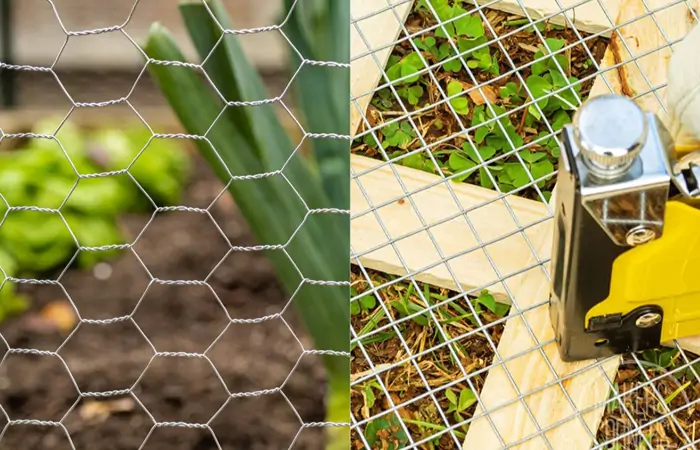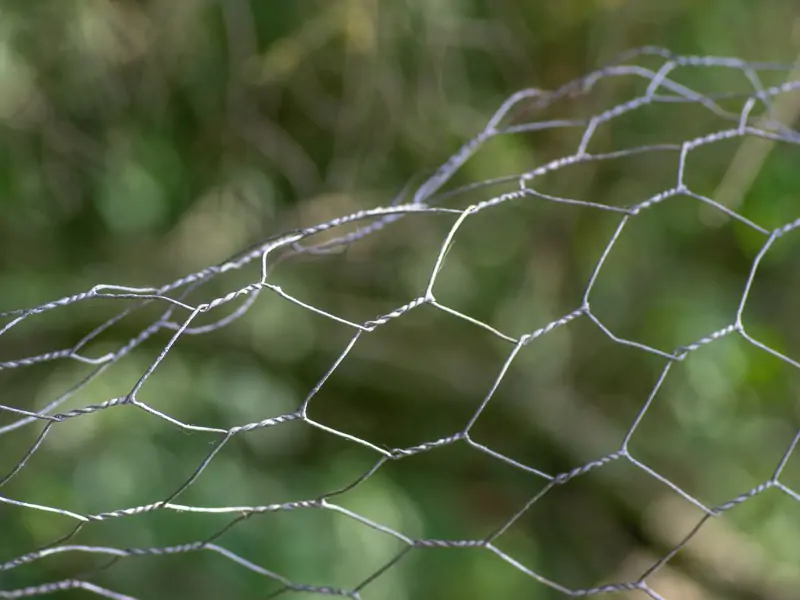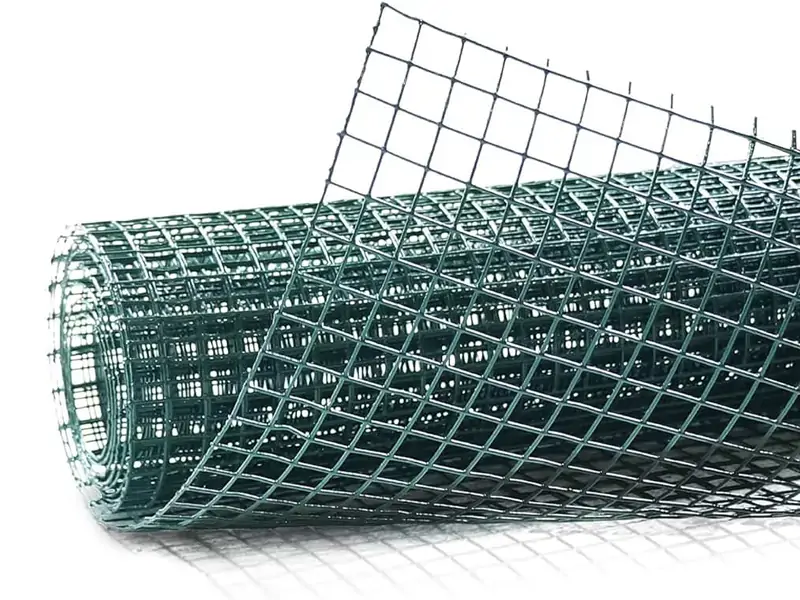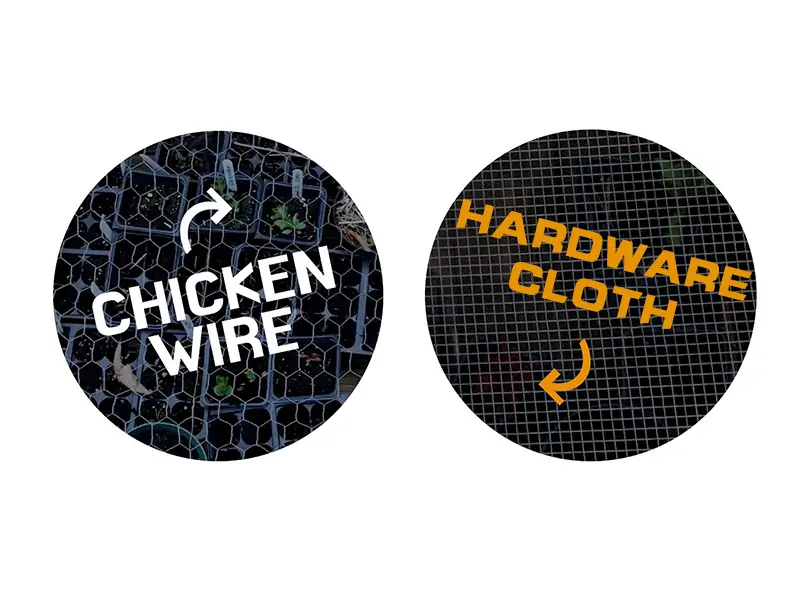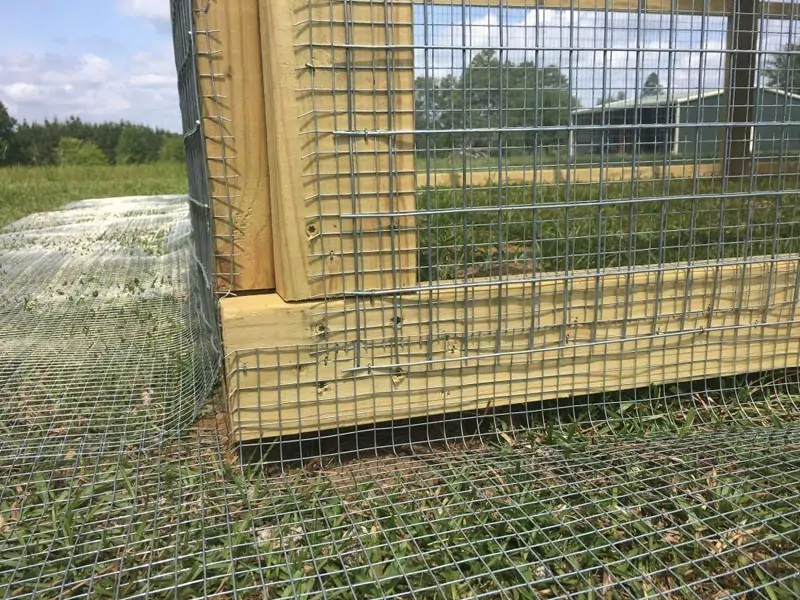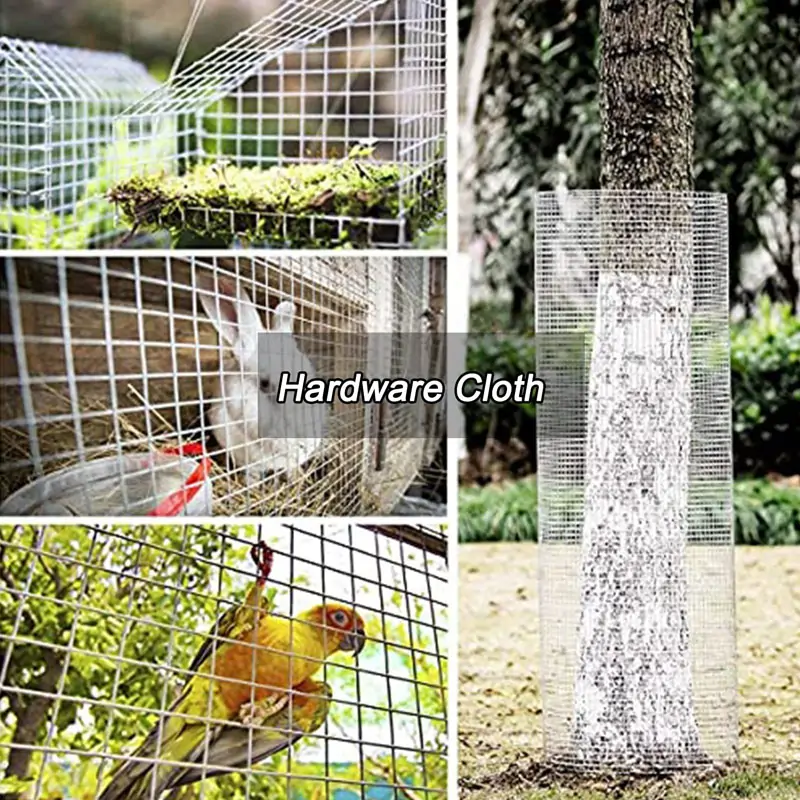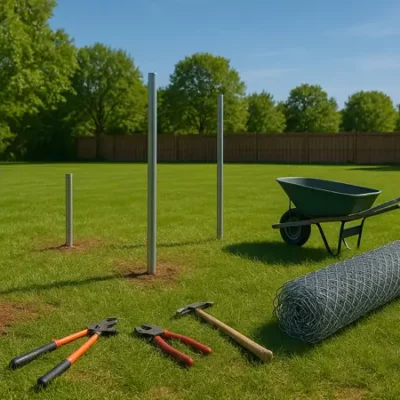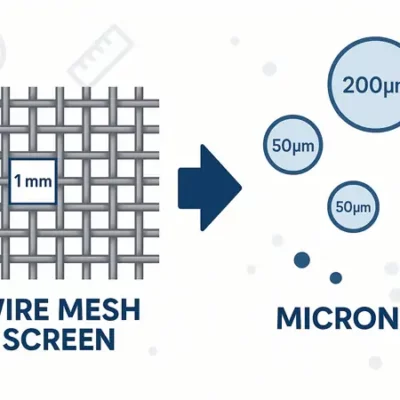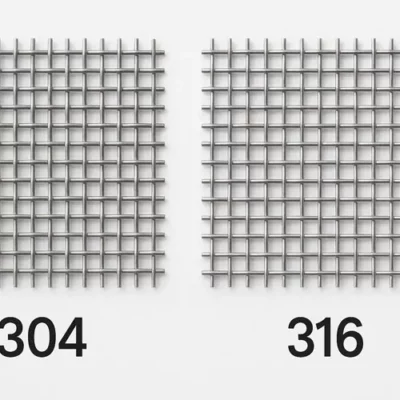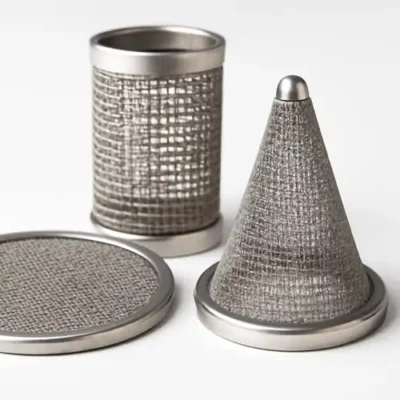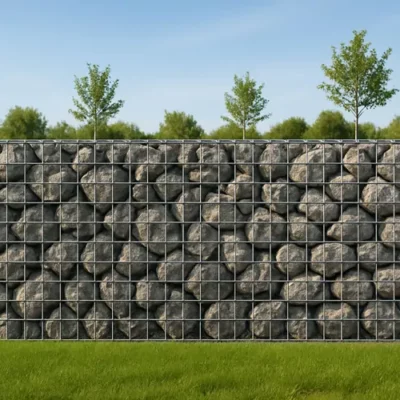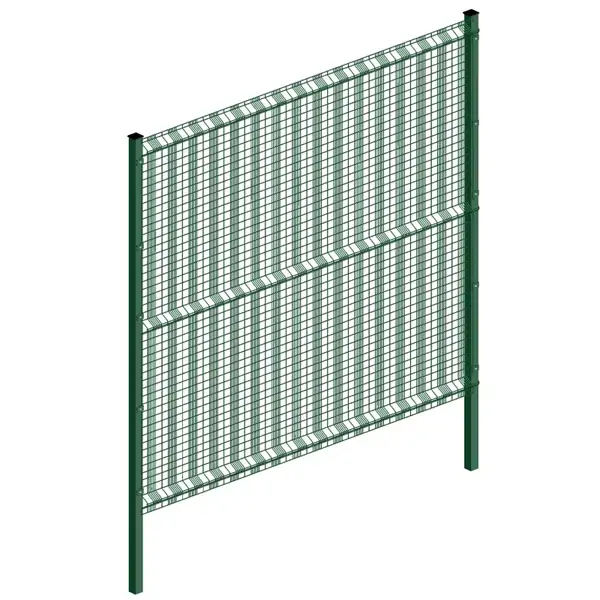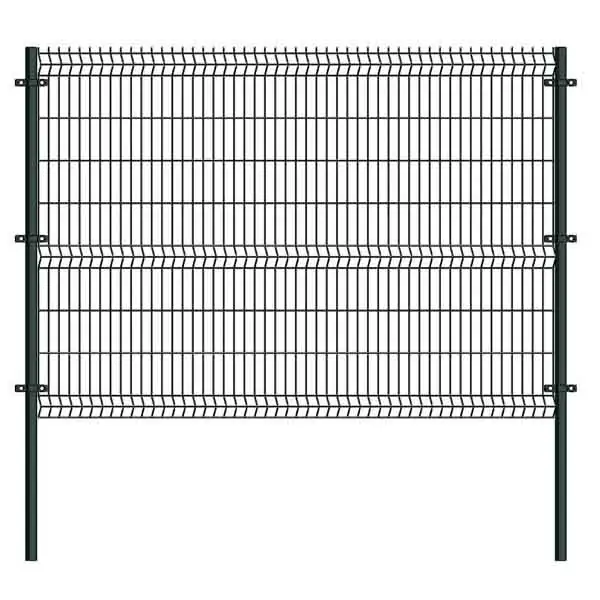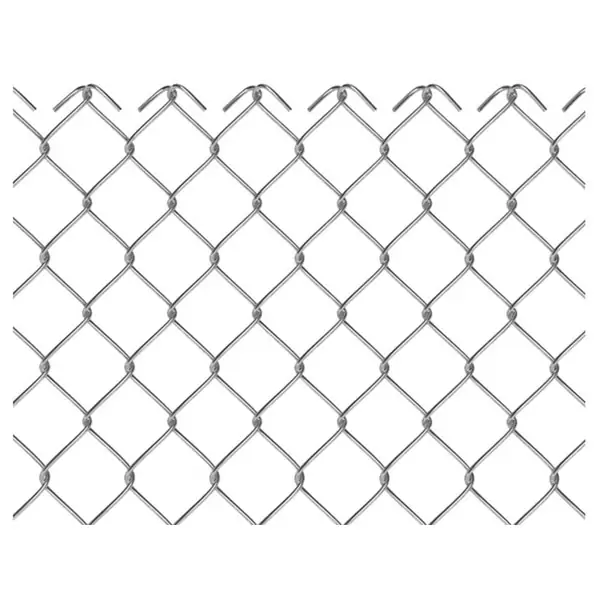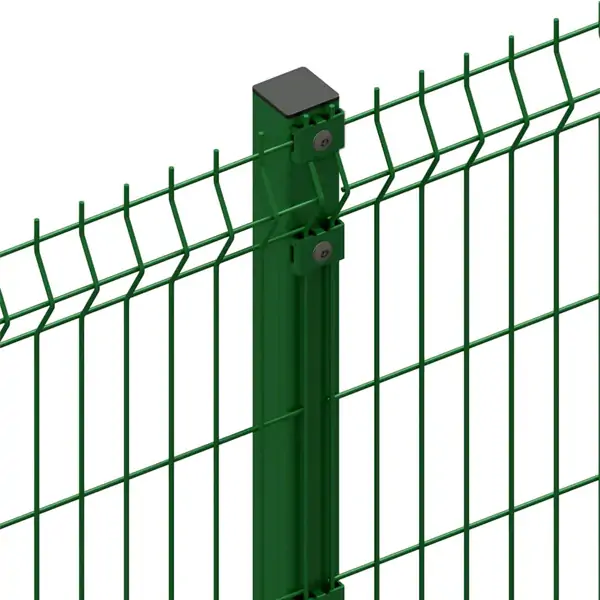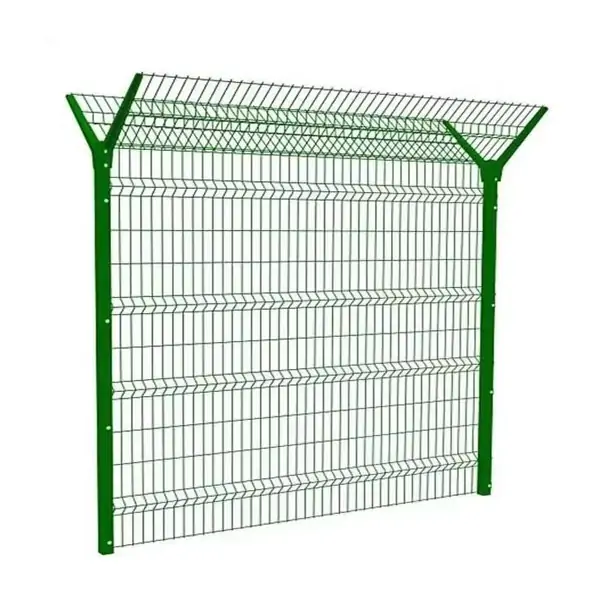Table of Contents
ToggleWhat is Chicken Wire? (Uses, Pros, and Cons)
Chicken wire, also known as poultry netting, is a type of lightweight wire mesh commonly used in agricultural settings. It is typically made of thin, galvanized steel wire twisted into a hexagonal pattern.
Construction and Material Overview
Chicken wire is constructed using relatively thin gauge wire, usually ranging from 20 to 22 gauge. Its hexagonal shape allows it to be flexible and easy to install, making it a popular choice for temporary enclosures and basic fencing needs.
Common Applications of Chicken Wire
-
Temporary garden fencing
-
Light animal enclosures
-
Protecting plants from small animals
-
DIY craft projects
Strengths and Weaknesses of Chicken Wire
While chicken wire is affordable and easy to handle, its weaknesses include:
-
Lack of predator resistance
-
Tendency to rust over time
-
Easily bent or torn by strong animals
What is Hardware Cloth? (Strength, Features, and Benefits)
Hardware cloth is a sturdier, more secure type of wire mesh. It consists of woven or welded steel wires in a square or rectangular grid pattern, available in various gauges and coatings.
How Hardware Cloth Is Made
Hardware cloth is manufactured using thicker steel wires, often coated with galvanized zinc or PVC to enhance corrosion resistance. Its structure offers rigid support and high durability.
Key Features and Advantages
-
Stronger and thicker than chicken wire
-
Resistant to rust and weather damage
-
Difficult for predators to tear or bite through
-
Available in different mesh sizes and wire gauges
Typical Industrial and Agricultural Uses
-
Permanent animal enclosures
-
Garden protection from burrowing pests
-
Industrial safety barriers
-
Vent covers and foundation screens
Chicken Wire vs. Hardware Cloth: Key Differences Explained
Construction and Durability
Chicken wire is lightweight and flexible, whereas hardware cloth is rigid and much stronger. The thicker wire and welded joints in hardware cloth offer better longevity.
Predator Protection and Effectiveness
Chicken wire can deter chickens from escaping but won’t stop predators like raccoons or foxes. Hardware cloth, with its tight grid and strength, provides superior protection.
Cost Comparison: Short-Term vs. Long-Term Investment
While chicken wire has a lower upfront cost, its frequent replacement and maintenance make hardware cloth a more cost-effective investment over time.
Why Chicken Wire Isn’t Enough for Chicken Coops
Common Security Issues with Chicken Wire
-
Predators can rip or chew through it
-
Small openings still allow snakes and weasels access
-
It can sag over time, creating gaps
Real-Life Examples of Chicken Wire Failures
Numerous farmers and backyard poultry keepers have reported predator attacks due to reliance on chicken wire alone, leading to losses of entire flocks.
Why Hardware Cloth Is the Best Choice for Secure Chicken Coops
Predator-Proof Protection
Hardware cloth creates a nearly impenetrable barrier, safeguarding chickens from ground and aerial predators.
Long-Term Durability in Harsh Conditions
Galvanized or PVC-coated hardware cloth withstands rain, snow, and heat without corroding or weakening.
Better Visibility and Ventilation for Poultry
The open design allows for ample airflow and visibility without compromising security.
How to Choose the Right Hardware Cloth for Your Chicken Coop
Selecting the Correct Gauge (Strength Considerations)
For chicken coops, a 19-gauge or thicker hardware cloth is recommended to ensure maximum strength.
Choosing the Best Mesh Size for Poultry Safety
-
½ inch mesh: Ideal for predator protection and preventing chick escapes.
-
¼ inch mesh: Offers enhanced security against small pests like rats and snakes.
Determining the Ideal Fence Height
A minimum height of 6 feet is recommended to prevent predators from climbing over.
Recommended Placement Areas for Hardware Cloth Installation
-
Entire perimeter, including underground
-
Coop windows and vents
-
Run fencing and floor
How to Install Hardware Cloth Properly (Step-by-Step Guide)
Tools You Will Need
-
Wire cutters
-
Heavy-duty staples or screws with washers
-
Protective gloves
-
Measuring tape
Best Practices for Secure Installation
-
Overlap seams by at least 2 inches
-
Bury hardware cloth at least 12 inches underground around the coop perimeter
-
Secure tightly with staples every few inches
Tips for Extending the Life of Your Hardware Cloth
-
Choose galvanized or PVC-coated products
-
Inspect periodically for signs of wear
-
Touch up damaged areas with rust-resistant paint
Cost vs. Peace of Mind: Is Hardware Cloth Worth It?
Long-Term ROI Analysis
Although hardware cloth costs more upfront, it reduces future losses from predator attacks, minimizing overall expenses.
Maintenance Costs: Hardware Cloth vs. Chicken Wire
Hardware cloth generally requires less maintenance, saving you time and replacement costs in the long run.
Wire Mesh Beyond Chicken Coops: Additional Applications
Agricultural Fencing
Protect livestock and crops from predators and pests.
Home Improvement and DIY Projects
Use in compost bins, gutter guards, and foundation screens.
Industrial Safety Barriers
Ideal for machine guarding, warehouse fencing, and ventilation covers.
Where to Buy High-Quality Hardware Cloth and Wire Mesh
What to Look for in a Reliable Supplier
-
Quality of coating and material
-
Range of sizes and specifications
-
Proven track record and customer reviews
Why Choose YESON for Your Wire Mesh Needs
At YESON, we specialize in manufacturing premium-grade hardware cloth and wire mesh tailored for agricultural, industrial, and construction applications. Our products are designed for durability, safety, and superior performance.
Contact us today to learn more about bulk orders, customized solutions, and international shipping options.
Hardware Cloth Success Stories: Real Customer Experiences
Case Studies from Farms and Agricultural Businesses
One poultry farm in Texas reported zero predator attacks after replacing chicken wire with ½ inch galvanized hardware cloth from YESON.
Before and After: Upgrading from Chicken Wire to Hardware Cloth
Switching to hardware cloth dramatically increased flock survival rates and reduced maintenance workload for many customers.
Conclusion: Secure Your Coop with the Right Material
Choosing between chicken wire and hardware cloth ultimately comes down to prioritizing your flock’s safety and your peace of mind. For long-lasting security and superior performance, hardware cloth is the clear winner.
Ready to protect your poultry the right way?
Get in touch with YESON for expert advice and premium wire mesh solutions today!

